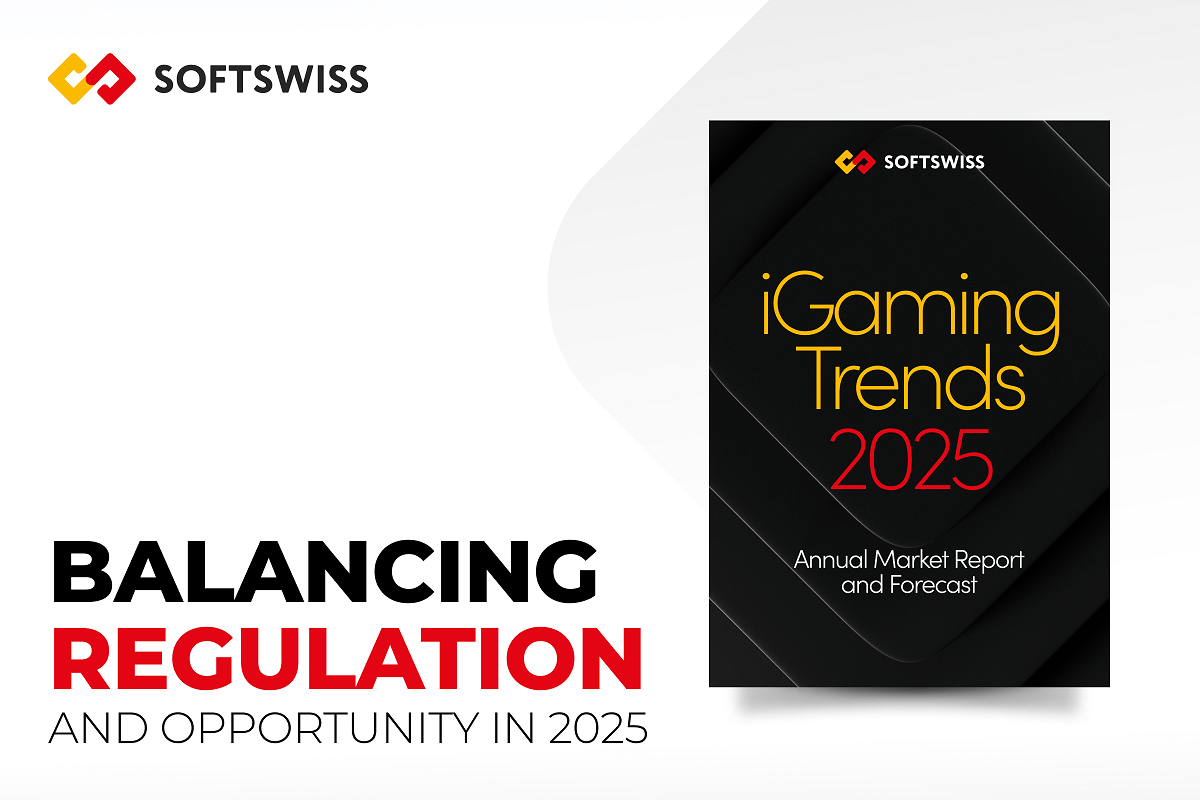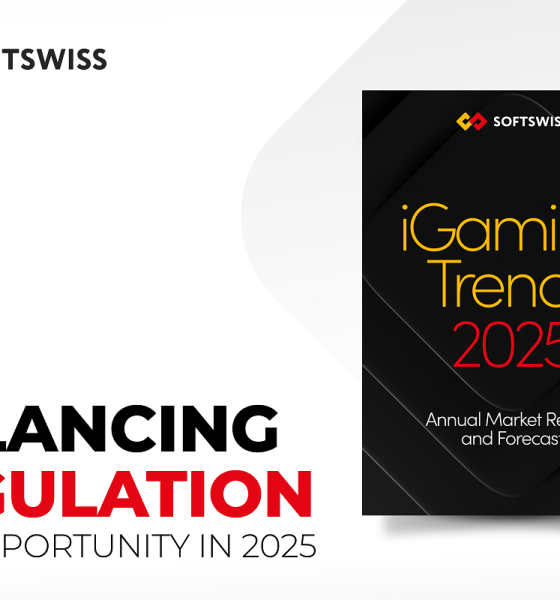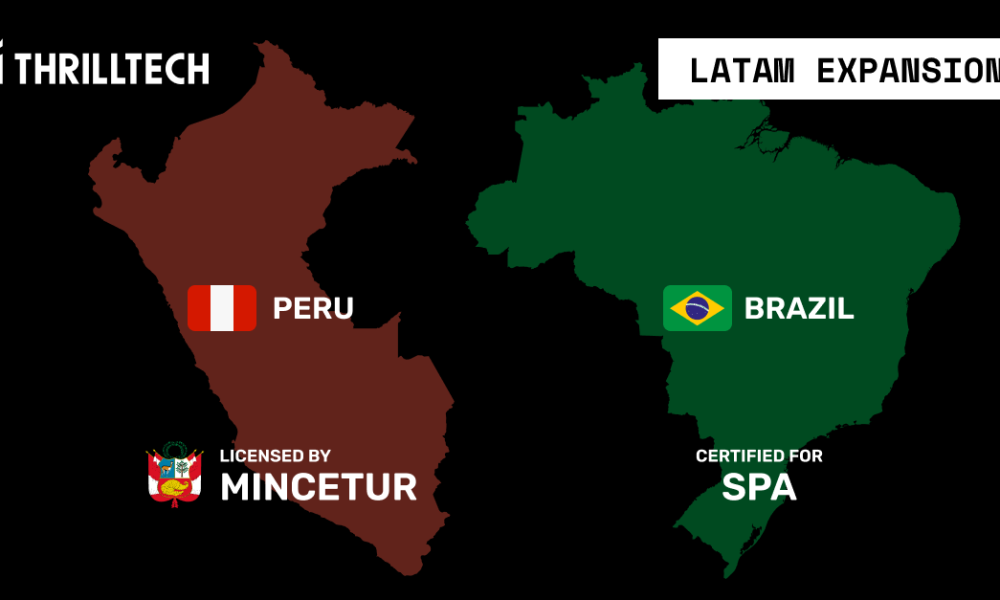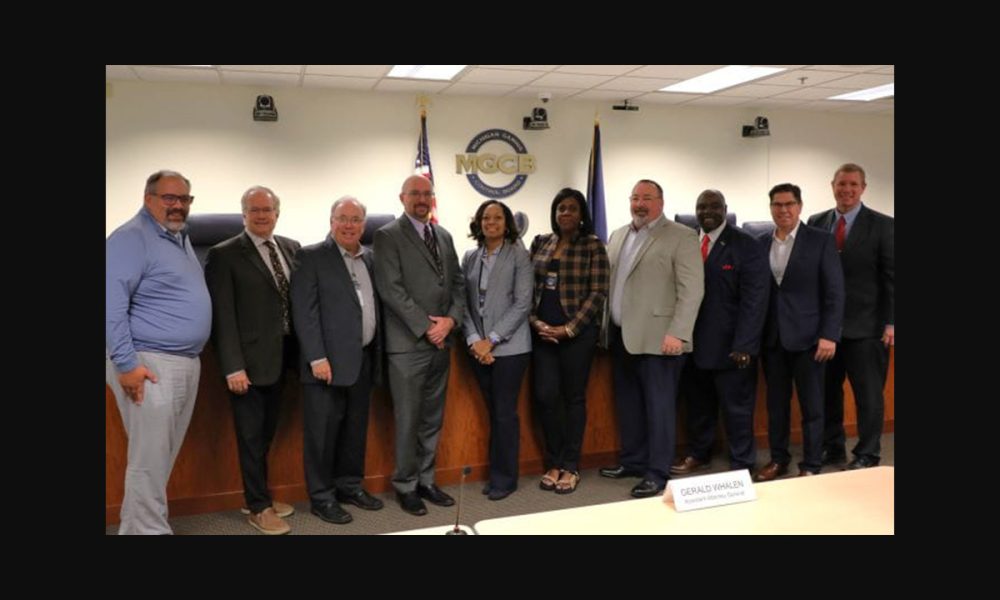

Compliance Updates
Balancing Regulations and Opportunities in 2025: Insights from SOFTSWISS
Growing regional fragmentation, the emergence of new legal frameworks, and the rising importance of sustainability and social responsibility are reshaping the regulatory landscape in the iGaming industry for 2025. Recognising the critical role regulation plays in the sector’s future, SOFTSWISS, a global tech expert with over 15 years of experience, has highlighted these trends in its latest report.
The SOFTSWISS team identifies the evolving regulatory environment as one of the key challenges and opportunities for operators and suppliers in the coming year. As global markets, including untapped regions, adopt stricter compliance measures, the ability to adapt and innovate within these frameworks is becoming a decisive factor for success.
The recent iGaming Trends 2025 Report from SOFTSWISS delves deeper into these transformations, exploring the impact of heightened regulation on industry dynamics. Key trends in the regulatory sphere include:
Regional Fragmentation:
During the research, industry experts were asked to rate the current legal environment in iGaming on a scale of 1 to 10. The average score was 6.1. While this indicates the environment is generally functional, it also suggests considerable room for improvement.
At the same time, compliance requirements are becoming increasingly fragmented, with countries implementing diverse rules regarding taxation, advertising, and player protection. To overcome this challenge, companies must demonstrate agility in adapting to localised demands effectively.
Emerging Markets:
As regions like Latin America, Asia, and Africa introduce formal regulatory structures, operators have unique opportunities to establish a foothold in these high-growth markets. However, navigating these emerging regulations will be essential for long-term success.
Max Trafimovich, CCO at SOFTSWISS, comments: “The key to identifying the right markets goes beyond upfront costs or immediate profitability. True capital lies in market knowledge, operational flexibility, and the ability to build meaningful partnerships. These are the assets that lead to sustainable growth and the most promising opportunities.”
Sustainability in Compliance:
Sustainability and social responsibility are becoming integral to regulation. Governments are focusing on ensuring fairness, preventing problem gambling, and increasing transparency in licensing.
This shift drives up operators’ costs and raises the bar for trust. Compliance is no longer just about meeting minimum standards; it is about building businesses that players, regulators, and investors can trust over the long term.
The iGaming Trends 2025 Report comprehensively analyses the industry’s most important directions for the year ahead. From the convergence of AI and cybersecurity to evolving marketing strategies and business development trends, the report is a must-read for anyone shaping the future of iGaming.
About SOFTSWISS
SOFTSWISS is an international technology company with over 15 years of experience developing innovative solutions for the iGaming industry. SOFTSWISS holds a number of gaming licences and provides comprehensive software for managing iGaming projects. The company’s product portfolio includes the Online Casino Platform, the Game Aggregator with over 23,500 casino games, Affilka Affiliate Platform, the Sportsbook software and the Jackpot Aggregator. In 2013, SOFTSWISS revolutionised the industry by introducing the world’s first Bitcoin-optimised online casino solution. The expert team, based in Malta, Poland, and Georgia, counts over 2,000 employees.
The post Balancing Regulations and Opportunities in 2025: Insights from SOFTSWISS appeared first on European Gaming Industry News.
Brazil
ThrillTech secures regulatory approvals to launch jackpots in Latam

Peru and Brazil to provide launchpad for Latam expansion as ThrillTech strengthens presence in emerging regulated markets
ThrillTech, the B2B jackpot specialist, has taken a significant step forward in its international growth strategy after securing a B2B licence in Peru and regulatory certification in Brazil.
The approvals clear the path for ThrillTech to launch its proprietary player-funded jackpot solutions in Latin America for the first time, bringing its flagship ThrillPots product to one of the world’s most exciting and emerging regions for iGaming.
Latin America has become a focal point for operators in recent years, with Brazil’s market liberalisation and Peru’s structured regulatory framework, as set out by the country’s ministry of foreign trade and tourism (MINCETUR), providing fertile ground for innovative engagement tools.
By working tirelessly to secure entry into both countries, ThrillTech is positioning itself to support operators with compliant, performance-driven jackpot mechanics that can drive revenue and enhance retention.
Peter Mares, CTO and co-founder of ThrillTech, said: “Expanding into Latin America is a milestone moment for us. The region is bursting with opportunity, but it also demands solutions that are flexible, transparent, and built to scale. With a licence in Peru and certification in Brazil, we are ready to deliver the same measurable revenue impact to operators in Latam that we’ve already proven in Europe.
ThrillTech’s products are designed to provide operators with new revenue streams through side-bet jackpots, while also offering real-time engagement mechanics via cash-only rewards.
Already integrated with multiple tier-one operators in Europe, ThrillTech is now primed to replicate that success in Latam by delivering regulator-approved solutions to local operators.
The post ThrillTech secures regulatory approvals to launch jackpots in Latam appeared first on Gaming and Gambling Industry in the Americas.
Asia
Digital gaming disruption tackled in 1st AsPac Regulators’ Forum

Regulators from across the Asia-Pacific region underscored the need to adapt to digital disruption in the gaming industry during the first-ever Regulators’ Forum held in Manila on Thursday, September 11.
In her keynote address, Philippine Amusement and Gaming Corporation (PAGCOR) President and COO Wilma Eisma said that while gaming jurisdictions across the region vary in size and maturity, they share common challenges such as cross-border transactions, rapid digitalization, and balancing economic benefits with social responsibility.
“In the Philippines, electronic gaming has become a significant growth driver and PAGCOR has responded with initiatives that ensure accountability, security, and consumer protection while allowing the industry to thrive responsibly,” Ms. Eisma said.
However, she said that digitalization, remote gaming, and emerging platforms are testing the limits of traditional oversight models.
“By exchanging best practices, aligning responsible standards, and keeping pace with innovation, we can ensure that the region’s gaming industry grows not just in size but in trust, resilience, and sustainability,” she said.
Ms. Eisma said PAGCOR has introduced reforms such as stricter advertising rules, stronger financial safeguards, and expanded responsible gaming programs but noted that the greater challenge lies in keeping pace with the rapid evolution of online and remote gaming.
The PAGCOR executive also expressed hope that the Regulators’ Forum will become an annual platform for dialogue, with an expanded edition already being planned for 2026.
“I am confident that this Regulators’ Forum will evolve into a hub for knowledge, collaboration and shared commitment,” she said. “Together, let us set the tone for gaming regulation in Asia: one that is innovative, collaborative and firmly anchored on integrity.”
The event was organized by PAGCOR and Inside Asian Gaming (IAG) and hosted by Newport World Resorts. It gathered regulators, operators, and stakeholders from across the region to tackle concerns on player protection and financial integrity, among others.
The post Digital gaming disruption tackled in 1st AsPac Regulators’ Forum appeared first on European Gaming Industry News.
Compliance Updates
MGCB Renews Licenses for Detroit’s Three Commercial Casinos, Highlighting Continued Community and Economic Impact

The Michigan Gaming Control Board (MGCB) unanimously approved license renewals for Detroit’s three commercial casinos—MGM Grand Detroit, MotorCity Casino, and Hollywood Casino at Greektown—during its regularly scheduled public board meeting.
The annual approval follows a comprehensive review of each casino’s operations, regulatory compliance, and commitment to responsible gaming practices, as required under the Michigan Gaming Control and Revenue Act. The decision ensures that Detroit residents and visitors can continue to enjoy a safe, secure, and well-regulated gaming environment.
“Detroit’s commercial casinos are not only entertainment destinations but also major contributors to the city and state economies. By renewing these licenses, the Board reaffirms its commitment to a gaming industry that promotes integrity, accountability, and community benefit. Our oversight helps ensure that patrons have a fair and responsible experience, while Michigan residents continue to see the economic value generated by casino revenues,” said MGCB Executive Director Henry Williams.
The Detroit casinos play a vital role in supporting public services through wagering and sports betting taxes. Licensees are taxed at a rate of 19% on adjusted gross receipts, with 8.1% going to the state and 10.9% to the City of Detroit, along with development agreement payments. Casinos also pay an 8.4% tax on retail sports betting qualified adjusted gross receipts and annual fees that support the state’s regulatory functions. These funds help sustain city services, economic development, and state initiatives.
The MGCB also emphasized the importance of small business participation in the casino supply chain, with measures in place to broaden opportunities for local vendors and suppliers.
Each of Detroit’s three casinos will be eligible for renewal again in September 2026.
The post MGCB Renews Licenses for Detroit’s Three Commercial Casinos, Highlighting Continued Community and Economic Impact appeared first on Gaming and Gambling Industry in the Americas.
-

 gaming3 years ago
gaming3 years agoODIN by 4Players: Immersive, state-of-the-art in-game audio launches into the next generation of gaming
-
EEG iGaming Directory9 years ago
iSoftBet continues to grow with new release Forest Mania
-
News8 years ago
Softbroke collaborates with Asia Live Tech for the expansion of the service line in the igaming market
-
News7 years ago
Super Bowl LIII: NFL Fans Can Bet on the #1 Sportsbook Review Site Betting-Super-Bowl.com, Providing Free Unbiased and Trusted News, Picks and Predictions
-
iGaming Industry8 years ago
Rick Meitzler appointed to the Indian Gaming Magazine Advisory Board for 2018
-
News7 years ago
REVEALED: Top eSports players set to earn $3.2 million in 2019
-
iGaming Industry8 years ago
French Senator raises Loot Boxes to France’s Gambling Regulator
-
News7 years ago
Exclusive Interview with Miklos Handa (Founder of the email marketing solutions, “MailMike.net”), speaker at Vienna International Gaming Expo 2018











